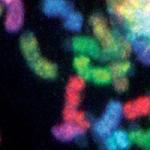
Research Topics
The two most prevalent neurodegenerative diseases – Parkinson's disease (PD) and Alzheimer's disease (AD) – show opposing sex-biases in occurrence: PD occurs more often in males while AD occurs more often in females. However, the biological mechanisms underlying these differences remain elusive. For example, we know that sex hormone concentrations change with age in both sexes and that these fluctuations occur rather rapidly in females (menopause) and gradually in males (andropause), but how these changes influence the brain and neurodegeneration are a mystery. Understanding these effects could illuminate mechanisms of resilience and vulnerability (which could inform preventative treatments) and improve precision medicine (by informing tailored therapies). Our work is focused on improving our understanding sex-related molecular mechanisms in the brain, characterizing their contributions to interindividual variation and aging, and linking them to mechanisms underlying neurodegenerative diseases.
Biography
Alex DeCasien, Ph.D., is an evolutionary neuroscientist and computational biologist dedicated to improving human health outcomes. Their research efforts are directed at understanding the underlying causes of sex/gender differences in the prevalence and presentation of neurodegenerative diseases. Dr. DeCasien received their BS, MA, MPhil, and PhD degrees from New York University. Their postdoctoral work in the Section on Developmental Neurogenomics at the National Institute of Mental Health involved: i) demonstrating functional differences between genes shared by the X and Y chromosomes; ii) characterizing sex differences in the human brain transcriptome with cell type resolution; and iii) outlining issues with and recommendations for research on sex differences in the human brain. For the latter, they were awarded the 2024 Early Career Award by the Organization for the Study of Sex Differences. Within the Laboratory of Neurogenetics, Dr. DeCasien's group focuses on understanding how sex-related mechanisms: i) contribute interindividual variation; ii) drive sex differences in aging and neurodegenerative disease; and iii) have evolved in humans and nonhuman primates.
Selected Publications
- DeCasien AR, Chiou KL, Testard C, Mercer A, Negrón-Del Valle JE, Bauman Surratt SE, González O, Stock MK, Ruiz-Lambides AV, Martínez MI, Cayo Biobank Research Unit, Antón SC, Walker CS, Sallet J, Wilson MA, Brent LJN, Montague MJ, Sherwood CC, Platt ML, Higham JP, Snyder-Mackler N. Evolutionary and biomedical implications of sex differences in the primate brain transcriptome. Cell Genom. 2024;4(7):100589.
- Chiou KL, DeCasien AR, Rees KP, Testard C, Spurrell CH, Gogate AA, Pliner HA, Tremblay S, Mercer A, Whalen CJ, Negrón-Del Valle JE, Janiak MC, Bauman Surratt SE, González O, Compo NR, Stock MK, Ruiz-Lambides AV, Martínez MI, Cayo Biobank Research Unit, Wilson MA, Melin AD, Antón SC, Walker CS, Sallet J, Newbern JM, Starita LM, Shendure J, Higham JP, Brent LJN, Montague MJ, Platt ML, Snyder-Mackler N. Multiregion transcriptomic profiling of the primate brain reveals signatures of aging and the social environment. Nat Neurosci. 2022;25(12):1714-1723.
- DeCasien AR, Guma E, Liu S, Raznahan A. Sex differences in the human brain: a roadmap for more careful analysis and interpretation of a biological reality. Biol Sex Differ. 2022;13(1):43.
- DeCasien AR, Barton RA, Higham JP. Understanding the human brain: insights from comparative biology. Trends Cogn Sci. 2022;26(5):432-445.
- DeCasien AR, Trujillo AE, Janiak MC, Harshaw EP, Caes ZN, Galindo GA, Petersen RM, Higham JP. Equivocal evidence for a link between megalencephaly-related genes and primate brain size evolution. Sci Rep. 2022;12(1):10902.
Related Scientific Focus Areas
This page was last updated on Thursday, December 5, 2024



